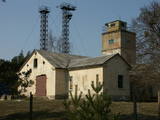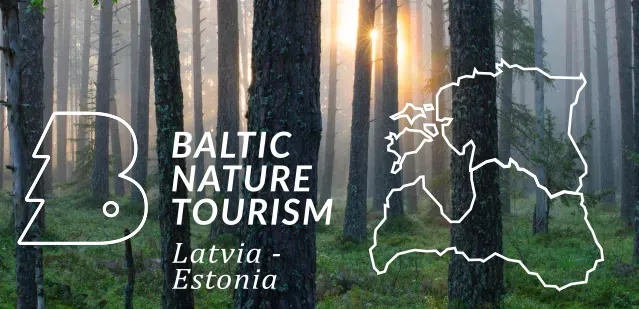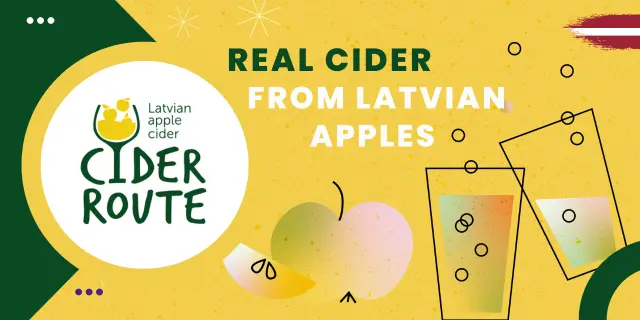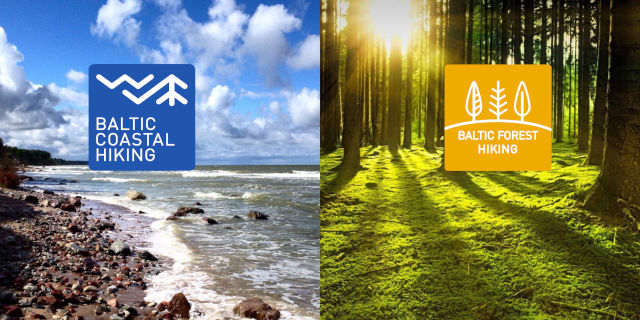Informers and the suspects
Border guard came to check peoples’ homes. We have an old “Book of the House” where these inspections are registered – when, at what times. They checked if there were strangers in the house. My elder brother was taken to serve in German military. After war he went to live in Canada, therefore our family was regarded as suspicious. One night, an elderly man arrived to our place. He spoke Latvian and asked if he can stay overnight. It was not allowed to accommodate strangers; we had to report them to the <i>zastav</i>. I do not remember how we reported, but the border guard arrived and took him. The next morning, their officer said “Thank you, Alexander!” to my father. Since then they started to regard us as less suspicious.
I come from Kolka; my grandson will be the 5th generation of my family living here.I finished secondary school in 1954 and entered the Kaliningrad University to study food technologies. Everything was in Russian. I interrupted my studies when I got married, and I did not return to the university. I worked in the laboratory of the Kolka fish factory, later for the fishing artel „Brīvais zvejnieks”, then for the fishing collective farm. I retired in 1991. I lived the “Sārnati” house, built by the collective farm in 1962. My father decided to buy the house and he paid it off. It stood on the place of an old farmstead, one of the first in Kolka village.
During the war, we were evacuated to Āži, near Dundaga. My mother’s uncle lived there. When Germans came in, my father got an entrance pass, as he was a fisherman and went to sea. We returned to Kolka before the end of the war in 1945. Not all the families were evacuated.
When the border guard first came in, so...it was just after the war, I was young, 10-11 years. The life became quite different. We had Germans, and then at once Russians. Germans were polite. Russians behaved differently, like winners would do. Local families had to provide accommodation before the border guard built their barracks. We had two women, Galina and Polina, living with us. They both wore side-caps.
So since then we had a prichal (a pier). All the boats were kept in one place, in the gulf side, the place was fenced, each boat was attached with a chain to a pole, and each had a key and a number. On a turret, there was a border guard post, vishka. The fishermen had to register, take a permit, go to the sea and return to the same place. In the beginning, my father was the head of the collective farm, later he was a brigade leader. Our family are fishermen. People could not go to the sea any place they liked. There was a designated site.
Border guard came to check peoples’ homes. We have an old “Book of the House” where these inspections are registered – when, at what times. They checked if there were strangers in the house. My elder brother was taken to serve in German military. After war he went to live in Canada, therefore our family was regarded as suspicious. One night, an elderly man arrived to our place. He spoke Latvian and asked if he can stay overnight. It was not allowed to accommodate strangers; we had to report them to the zastav. I do not remember how we reported, but the border guard arrived and took him. The next morning, their officer said “Thank you, Alexander!” to my father. Since then they started to regard us as less suspicious. They had headquarters in Ventspils from where they managed things and sent their inspections.
Our grammar school was next to the zastav. Girls would be girls, and border guards were young men, too. We often played ball games together. We had a teacher his name was Bernshtein. It was in 1949 when deportations took place, the border guards were arriving in peoples’ homes and taking them away to zastav. Nevertheless, we were young and continued to meet and talk with border guard soldiers. Our teacher was very angry and said, “They are taking our men from Kolka, but you are just giggling here.”
Later the border guard commander was always present at the military drill contests we had in school on February 23, the Soviet Army’s Day.
The border guards were of different nationalities, one of them was Tatar, and there were Lithuanians, Russians, and Belarusians, from all the Soviet Union. I cannot remember of a Latvian. We talked in Russian.
Many border guard men married Latvian girls. There was a pretty girl Kristiņa by surname, she married the officer Belyavin. He stayed in Latvia and later they both lived in Riga. Many couples married, and often girls went away with their husbands.
There were two churches in Kolka, the Lutheran and the Orthodox. At that time, we could not go to church. There were people at school and at work to watch you and report on you. Most of youngsters were in pioneers, in Komsomol, and to join the Communist party. These organisations would not allow their members to attend church. There were some who went secretly, but if caught, they were scolded.
When there were dancing parties in the village, the border guard soldiers came, too. Dancing took place in the local club, but sometimes we danced on the upper floor of the fish factory. The soldiers had to get permission to come to parties, but then they had to return at set time anyway. Marines had more freedom. Both – border guards and marines took part in the local sports festival. There was the headquarters in Ventspils, and from there border guards arrived with concerts. Local people came to listen. After festivals and concerts, there was dancing. My boss (a woman) fell in love with some military man from Ventspils, they exchanged letters for a long time later. Many families moved in to Kolka from Lielirbe, probably because the missile base was built there.
We had two swimming sites In Kolka where local people could get to the sea. One was opposite the local club; another was further down the shore. We could not walk along the coast as we pleased. We had to take permission from zastav and tell where we wanted to go. There were always border guards patrolling, we could not make a step without a passport. If we had guests, we had to report to zastav, even if we had the permissions. On the way to Mazirbe, there was a border guard patrol at Saunags. If someone had no passport, the border guards took that person to their post and everybody had to wait until they called to find out if such person lived in Kolka. There was strong control and we had to report on everything, otherwise we were regarded as suspicious. There were many informers in the village, they watched everything, but I do not know if they were paid. My husband was a driver; he was taking people to work from their homes. Always a border guard went with them in the car and often he would say it openly: “in this house we have an informer”. The village was covered by informer network.
The border guards had dogs. The seacoast sand was harrowed, and border guard went with dogs every morning to check. The dogs were looking for trace. There were also vishkas, border guard turrets, and the guards changed in set times. The vishka before Vaide was called the Green Tower. At Melnsils there was a station, at Roja there was a bigger station because it was a sea fishing port. There were zastavs at Melnsils, Kolka, Saunags. Further, I do not know.
The local people were not admitted in zastav. There was a guard at the gates, passes, and a big fence around. If someone needed to talk to the officer, the soldiers called him and he came out. Well, if they caught you, they took you in to the officer’s office, but this is another story. For some time, the zastav was located in the former estate building by the church, and the school was nearby. The windows in the zastav side were bricked up; we should not see what happens in there, because it was the secret of war.
At first, the officers and their families were accommodated with local people. We had an officer family living with our neighbours – his wife was a doctor, and he was the commander of the zastav. Later a new zastav was built with barracks and the officers’ house, and then the officer families moved there. The barracks have not survived to present day.
During the war, we were evacuated to Āži, near Dundaga. My mother’s uncle lived there. When Germans came in, my father got an entrance pass, as he was a fisherman and went to sea. We returned to Kolka before the end of the war in 1945. Not all the families were evacuated.
When the border guard first came in, so...it was just after the war, I was young, 10-11 years. The life became quite different. We had Germans, and then at once Russians. Germans were polite. Russians behaved differently, like winners would do. Local families had to provide accommodation before the border guard built their barracks. We had two women, Galina and Polina, living with us. They both wore side-caps.
So since then we had a prichal (a pier). All the boats were kept in one place, in the gulf side, the place was fenced, each boat was attached with a chain to a pole, and each had a key and a number. On a turret, there was a border guard post, vishka. The fishermen had to register, take a permit, go to the sea and return to the same place. In the beginning, my father was the head of the collective farm, later he was a brigade leader. Our family are fishermen. People could not go to the sea any place they liked. There was a designated site.
Border guard came to check peoples’ homes. We have an old “Book of the House” where these inspections are registered – when, at what times. They checked if there were strangers in the house. My elder brother was taken to serve in German military. After war he went to live in Canada, therefore our family was regarded as suspicious. One night, an elderly man arrived to our place. He spoke Latvian and asked if he can stay overnight. It was not allowed to accommodate strangers; we had to report them to the zastav. I do not remember how we reported, but the border guard arrived and took him. The next morning, their officer said “Thank you, Alexander!” to my father. Since then they started to regard us as less suspicious. They had headquarters in Ventspils from where they managed things and sent their inspections.
Our grammar school was next to the zastav. Girls would be girls, and border guards were young men, too. We often played ball games together. We had a teacher his name was Bernshtein. It was in 1949 when deportations took place, the border guards were arriving in peoples’ homes and taking them away to zastav. Nevertheless, we were young and continued to meet and talk with border guard soldiers. Our teacher was very angry and said, “They are taking our men from Kolka, but you are just giggling here.”
Later the border guard commander was always present at the military drill contests we had in school on February 23, the Soviet Army’s Day.
The border guards were of different nationalities, one of them was Tatar, and there were Lithuanians, Russians, and Belarusians, from all the Soviet Union. I cannot remember of a Latvian. We talked in Russian.
Many border guard men married Latvian girls. There was a pretty girl Kristiņa by surname, she married the officer Belyavin. He stayed in Latvia and later they both lived in Riga. Many couples married, and often girls went away with their husbands.
There were two churches in Kolka, the Lutheran and the Orthodox. At that time, we could not go to church. There were people at school and at work to watch you and report on you. Most of youngsters were in pioneers, in Komsomol, and to join the Communist party. These organisations would not allow their members to attend church. There were some who went secretly, but if caught, they were scolded.
When there were dancing parties in the village, the border guard soldiers came, too. Dancing took place in the local club, but sometimes we danced on the upper floor of the fish factory. The soldiers had to get permission to come to parties, but then they had to return at set time anyway. Marines had more freedom. Both – border guards and marines took part in the local sports festival. There was the headquarters in Ventspils, and from there border guards arrived with concerts. Local people came to listen. After festivals and concerts, there was dancing. My boss (a woman) fell in love with some military man from Ventspils, they exchanged letters for a long time later. Many families moved in to Kolka from Lielirbe, probably because the missile base was built there.
We had two swimming sites In Kolka where local people could get to the sea. One was opposite the local club; another was further down the shore. We could not walk along the coast as we pleased. We had to take permission from zastav and tell where we wanted to go. There were always border guards patrolling, we could not make a step without a passport. If we had guests, we had to report to zastav, even if we had the permissions. On the way to Mazirbe, there was a border guard patrol at Saunags. If someone had no passport, the border guards took that person to their post and everybody had to wait until they called to find out if such person lived in Kolka. There was strong control and we had to report on everything, otherwise we were regarded as suspicious. There were many informers in the village, they watched everything, but I do not know if they were paid. My husband was a driver; he was taking people to work from their homes. Always a border guard went with them in the car and often he would say it openly: “in this house we have an informer”. The village was covered by informer network.
The border guards had dogs. The seacoast sand was harrowed, and border guard went with dogs every morning to check. The dogs were looking for trace. There were also vishkas, border guard turrets, and the guards changed in set times. The vishka before Vaide was called the Green Tower. At Melnsils there was a station, at Roja there was a bigger station because it was a sea fishing port. There were zastavs at Melnsils, Kolka, Saunags. Further, I do not know.
The local people were not admitted in zastav. There was a guard at the gates, passes, and a big fence around. If someone needed to talk to the officer, the soldiers called him and he came out. Well, if they caught you, they took you in to the officer’s office, but this is another story. For some time, the zastav was located in the former estate building by the church, and the school was nearby. The windows in the zastav side were bricked up; we should not see what happens in there, because it was the secret of war.
At first, the officers and their families were accommodated with local people. We had an officer family living with our neighbours – his wife was a doctor, and he was the commander of the zastav. Later a new zastav was built with barracks and the officers’ house, and then the officer families moved there. The barracks have not survived to present day.
| Tourism objects involved in this story | ||
|---|---|---|
The Cape of Kolka is freely accessible to local residents and tourists today, but the border guard facility still serves its purposes and is not open to civilians. |
||









